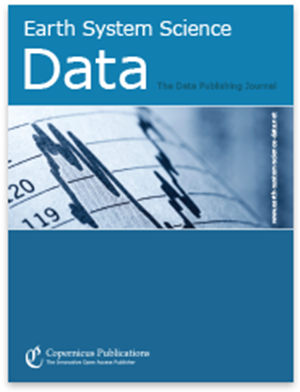A consistent dataset for the net income distribution for 190 countries and aggregated to 32 geographical regions from 1958 to 2015
IF 11.6
1区 地球科学
Q1 GEOSCIENCES, MULTIDISCIPLINARY
引用次数: 0
Abstract
Abstract. Data on income distributions within and across countries are becoming increasingly important for informing analysis of income inequality and understanding the distributional consequences of climate change. While datasets on income distribution collected from household surveys are available for multiple countries, these datasets often do not represent the same concept of inequality (or income concept) and therefore make comparisons across countries, over time and across datasets difficult. Here, we present a consistent dataset of income distributions across 190 countries from 1958 to 2015 measured in terms of net income. We complement the observed values in this dataset with values imputed from a summary measure of the income distribution, specifically the Gini coefficient. For the imputation, we use a recently developed nonparametric principal-component-based approach that shows an excellent fit to data on income distributions compared to other approaches. We also present another version of this dataset aggregated from the country level to 32 geographical regions. Our dataset is developed for the purpose of calibrating models such as integrated human–Earth system models with detailed data on income distributions. This dataset will enable more robust analysis of income distribution at multiple scales. The latest version of our data are available on Zenodo: https://doi.org/10.5281/zenodo.7093997 (Narayan et al., 2022b).1958 年至 2015 年 190 个国家净收入分配的一致数据集,并汇总到 32 个地理区域
摘要国家内部和国家之间的收入分配数据对于分析收入不平等和了解气候变化的分配后果越来越重要。虽然从住户调查中收集到了多个国家的收入分配数据集,但这些数据集通常并不代表相同的不平等概念(或收入概念),因此难以进行跨国家、跨时间和跨数据集的比较。在此,我们提供了 1958 年至 2015 年 190 个国家以净收入衡量的一致的收入分布数据集。我们用收入分配的概括指标(特别是基尼系数)估算出的数值来补充该数据集中的观测值。在估算过程中,我们使用了最近开发的一种基于主成分的非参数方法,与其他方法相比,该方法对收入分布数据的拟合效果极佳。我们还介绍了该数据集的另一个版本,从国家层面汇总到 32 个地理区域。我们开发数据集的目的是利用详细的收入分布数据校准人地综合系统模型等模型。通过该数据集,可以对多种尺度的收入分配情况进行更有力的分析。我们最新版本的数据可在 Zenodo 上查阅:https://doi.org/10.5281/zenodo.7093997(Narayan 等人,2022b)。
本文章由计算机程序翻译,如有差异,请以英文原文为准。
求助全文
约1分钟内获得全文
求助全文
来源期刊

Earth System Science Data
GEOSCIENCES, MULTIDISCIPLINARYMETEOROLOGY-METEOROLOGY & ATMOSPHERIC SCIENCES
CiteScore
18.00
自引率
5.30%
发文量
231
审稿时长
35 weeks
期刊介绍:
Earth System Science Data (ESSD) is an international, interdisciplinary journal that publishes articles on original research data in order to promote the reuse of high-quality data in the field of Earth system sciences. The journal welcomes submissions of original data or data collections that meet the required quality standards and have the potential to contribute to the goals of the journal. It includes sections dedicated to regular-length articles, brief communications (such as updates to existing data sets), commentaries, review articles, and special issues. ESSD is abstracted and indexed in several databases, including Science Citation Index Expanded, Current Contents/PCE, Scopus, ADS, CLOCKSS, CNKI, DOAJ, EBSCO, Gale/Cengage, GoOA (CAS), and Google Scholar, among others.
 求助内容:
求助内容: 应助结果提醒方式:
应助结果提醒方式:


